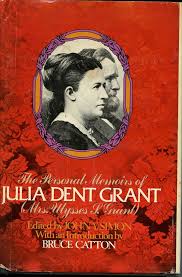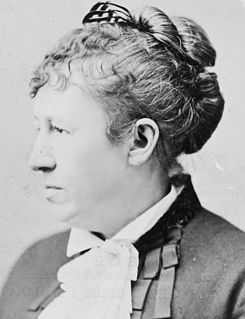
Julia Boggs Grant was the first lady of the United States and wife of President Ulysses S. Grant. As first lady, she became a national figure in her own right. Her memoirs, The Personal Memoirs of Julia Dent Grant were published in 1975.
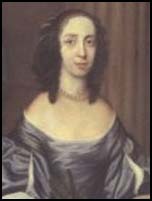
Lucy Hutchinson (1618–1681) was an English translator, poet, and biographer, and the first person to translate the complete text of Lucretius's De rerum natura into English verse, during the years of the Interregnum (1649–1660).
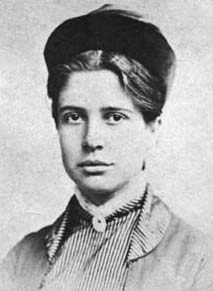
Florence Moltrop Kelley was a social and political reformer and the pioneer of the term wage abolitionism. Her work against sweatshops and for the minimum wage, eight-hour workdays, and children's rights is widely regarded today.

Ulysses S. Grant National Historic Site is a 9.65-acre (3.91 ha) United States National Historic Site located 10 mi (16 km) southwest of downtown St. Louis, Missouri, within the municipality of Grantwood Village, Missouri. The site, also known as White Haven, commemorates the life, military career and presidency of Ulysses S. Grant. Five historic structures are preserved at the site, including the childhood home of Ulysses' wife, Julia Dent Grant.
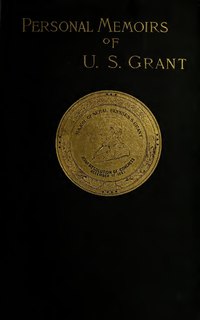
The Personal Memoirs of U. S. Grant is an autobiography by Ulysses S. Grant, the 18th President of the United States, focused mainly on his military career during the Mexican–American War and the American Civil War, and completed as he was dying of throat cancer in 1885. The two-volume set was published by Mark Twain shortly after Grant's death.

Ellen Wrenshall "Nellie" Grant was the third child and only daughter of U.S. President Ulysses S. Grant and First Lady Julia Grant. At the age of 16, Nellie was sent abroad to England by President Grant, and was received by Queen Victoria. As a teenager growing up in the White House, she attracted much attention.

Appomattox is an opera in English based on the surrender ending the American Civil War, composed by Philip Glass, with a libretto by the playwright Christopher Hampton. The work had its world premiere at the San Francisco Opera on October 5, 2007, with a cast that included Dwayne Croft as Robert E. Lee and Andrew Shore as Ulysses S. Grant. The revised version commissioned and premiered by the Washington National Opera on November 14, 2015, expanded the work from 90 minutes to 160 minutes and added roles for Martin Luther King Jr. and Lyndon Johnson.

Frederick Tracy Dent was an American general.

Julia Dent Grant Cantacuzène Speransky, Princess Cantacuzène, Countess Speransky, was an American author and historian. She was the eldest child of Frederick Dent Grant and his wife Ida Marie Honoré, and the second grandchild of Ulysses S. Grant, the 18th President of the United States. In 1899, she married Prince Mikhail Cantacuzène, a Russian general and diplomat.
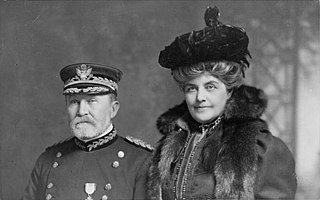
Ida Marie Honoré Grant was an American socialite, philanthropist, and ambassador's wife.

Ulysses S. Grant was the 18th president of the United States (1869–1877) following his success as military commander in the American Civil War. Under Grant, the Union Army defeated the Confederate military and secession, the war ending with the surrender of Robert E. Lee's army at Appomattox Court House. As president, Grant led the Radical Republicans in their effort to eliminate vestiges of Confederate nationalism and slavery, protect African American citizenship, and pursued Reconstruction in the former Confederate states. In foreign policy, Grant sought to increase American trade and influence, while remaining at peace with the world. Although his Republican Party split in 1872 as reformers denounced him, Grant was easily reelected. During his second term the country's economy was devastated by the Panic of 1873, while investigations exposed corruption scandals in the administration. Although still below average, his reputation among scholars has significantly improved in recent years because of greater appreciation for his commitment to civil rights, moral courage in his prosecution of the Ku Klux Klan, and enforcement of voting rights.

Walter Place is a historic mansion in Holly Springs, Mississippi, United States. Built in 1860 for pro-Union Harvey Washington Walter, the President of the Mississippi Central Railroad. The mansion was the temporary home of Union General Ulysses Grant and his wife Julia Grant during part of the American Civil War. Later, it was the summer residence of Oscar Johnson, Jr., the co-founder of the International Shoe Company. A combination of Greek Revival and Gothic Revival architectural styles, it was the most expensive house in Mississippi on the market in 2011.
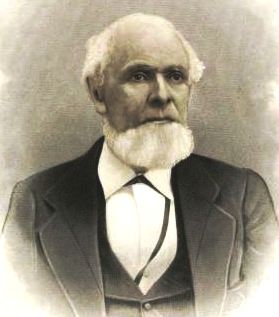
Colonel Harvey Washington Walter (1819–1878) was an American lawyer and railroad business executive. He served as the President of the Mississippi Central Railroad. During the Civil War, he invited Union General Ulysses Grant and his wife, Julia Grant, to stay in his mansion, Walter Place. He succumbed to the yellow fever after turning it into a hospital for patients in 1878.
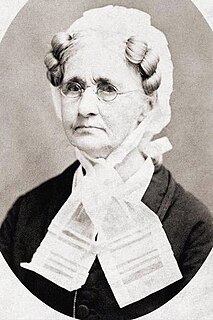
Hannah Grant was the mother of Ulysses S. Grant, the famous Union general in the American Civil War and the 18th president of the United States. She married Jesse Root Grant in Point Pleasant, Ohio, and was the mother of six children. Little is known about her private life, other than what can be discerned from general and public information. She rarely discussed her son with anyone while he was a general and a president, especially not the press. She was a devoutly religious woman, always reserved and unpretentious in her manner, and she is often considered by historians and others to have had a strong influence on her son Ulysses who shared similar qualities in character.
Duong Van Mai Elliott is a Vietnamese author, writer and translator. Her memoir, The Sacred Willow: Four Generations in the Life of a Vietnamese Family, tells the story of the Vietnam War from the perspective of a Vietnamese family. She was also featured in The Vietnam War, PBS's 18-hour documentary series on the conflict.

Recollections of Full Years is a 1914 memoir by Helen Taft, a First Lady of the United States and wife of William Howard Taft. The memoirs were the first to be published by a first lady. The book serves as "the most important source of information" about Helen Taft.

My Memoir is a 1938 memoir by Edith Wilson, a First Lady of the United States and the wife of Woodrow Wilson. She wrote the book as an apologia to defend her husband from perceived attacks, and to preserve his legacy. Critics generally considered the book to be "delightful" as a "collection of episodes", but especially those writing at publication predicted it would be of little historical value except for its account of Woodrow Wilson's stroke and last days in office. However it has been used by academic historians in the late 20th and early 21st centuries to examine a variety of topics related to Edith Wilson.

This I Remember is a 1949 memoir by Eleanor Roosevelt, an American political figure, diplomat, activist and First Lady of the United States while her husband, Franklin D. Roosevelt, was President of the United States. This I Remember was one of four memoirs written by Roosevelt, the other three being: This Is My Story, On My Own, and The Autobiography of Eleanor Roosevelt. It was received well by critics and was a commercial success.

The Ulysses S. Grant Monument is a presidential memorial in Chicago, honoring American Civil War general and 18th President of the United States Ulysses S. Grant. Located in Lincoln Park, the statue was commissioned shortly after the president's death in 1885 and was completed in 1891. Several artists submitted sketches, and Louis Rebisso was selected to design the statue, with a granite pedestal suggested by William Le Baron Jenney. At the time of its completion, the monument was the largest bronze statue cast in the United States, and over 250,000 people were present at the dedication.
